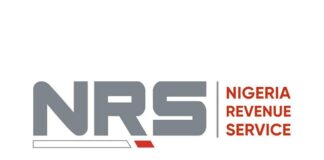Details: See visa updates in 6 various countries effective September
Canada, for example, will waive the IELTS requirement for specific work permits, making it easier for workers in sectors facing labor shortages to enter the country.
Visa regulations are changing worldwide starting this September, and these updates could affect frequent travelers, foreign workers, and students.
The new regulations are aimed at addressing various national priorities, from attracting skilled labor to managing immigration more effectively.
For foreign workers, several countries are easing certain requirements to fill critical skill shortages.
Canada, for example, will waive the IELTS requirement for specific work permits, making it easier for workers in sectors facing labor shortages to enter the country.
Germany is introducing tax reductions to attract skilled workers in technology and engineering to enhance its economic competitiveness.
Here are the key updates across several countries:
– Canada waiving the IELTS requirement for certain work permit applications
Canada has started to ease the entry process for foreign workers by removing the IELTS requirement for certain work permits, particularly those tied to employer-specific roles and sectors with labour shortages.
While this change simplifies temporary work permit applications, language proficiency may still be required for permanent residency. Applicants should review specific eligibility criteria and documentation requirements to ensure successful applications.
– Germany offering tax reductions for skilled foreign workers
Germany introduced a new tax reduction plan to attract skilled foreign workers, particularly in technology and engineering starting this month.
The plan offers tax rebates of 30 per cent in the first year, 20 per cent in the second, and 10 per cent in the third, aimed at making Germany more appealing to high-skilled professionals and addressing labour shortages in key sectors.
According to Christian Lindner, the Federal Minister of Finance, “We are creating a tax rebate for foreign professionals during their first three years in Germany. There will be rebates of 30 percent, 20 percent and 10 percent for people who come here as qualified specialists”.
These measures, effective immediately for new and existing work visa holders, are part of Germany’s broader strategy to enhance economic competitiveness by fostering a more dynamic and skilled workforce.
– New Zealand introducing a “Straight to Residence Visa” for Tier 1 jobs
New Zealand introduced a “Straight to Residence Visa” this month, offering a direct pathway to residency for individuals in Tier 1 jobs within high-demand industries, such as healthcare, IT, and engineering.
This visa simplifies the process by removing traditional work-to-residency criteria, thereby reducing processing times, and making it easier for skilled workers to relocate to New Zealand. The initiative reflects New Zealand’s strategy to attract and retain top talent, addressing critical labour needs and supporting the country’s long-term economic growth.
– United States experiencing longer visa wait times and changes to the H-1B visa lottery system
Starting in September, the US embassy expects longer visa wait times due to a surge in applications, particularly affecting tourists, students, and work visa applicants.
Hence, changes to the H-1B visa lottery system will introduce stricter eligibility criteria and increased scrutiny to reduce fraud, which may impact the timing and success of visa approvals. Applicants are advised to start the process early and ensure all documentation is accurate to avoid delays and complications.
– Ireland implementing new flexible employment permits
From September, Ireland will implement more flexible employment permits, allowing foreign workers to switch employers and industries without restarting the visa process.
The improvements in the new Act will allow for a more modern, flexible employment permit system as well as ensure employee rights are maintained.
According to Peter Burke, the minister for Enterprise, Trade and Employment of Ireland, “The improvements in the new Act will allow for a more modern, flexible employment permits system as well as ensuring employee rights are maintained”.
– The UAE introducing a visa amnesty program
From September, the UAE will introduce a visa amnesty programme allowing visa overstayers to regularise their status without fines. This limited-time initiative offers the chance to either switch to new visa types or exit the country without financial penalties, encouraging prompt action from those eligible.
Suhail Saeed Al Khaili, head of the Federal Authority for Identity, Citizenship, Customs and Ports Security, said, “It is a chance for all violators to change their status in the country.” He said the initiative will enhance the country’s position in the human rights sector.
“We want to support the people who are staying in the country by changing their status to enable them to get their rights and have a safe exit from the country or work and live decently in the UAE.”
For more detailed information, please review the specific requirements and documentation for each country.















